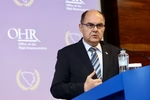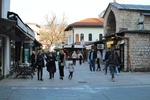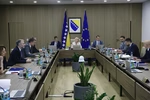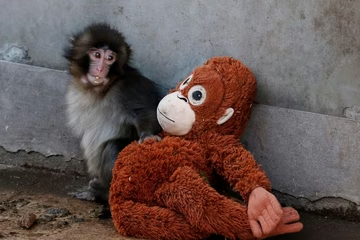Meeting of party leaders in BiH's RS entity regarding genocide denial ban starts
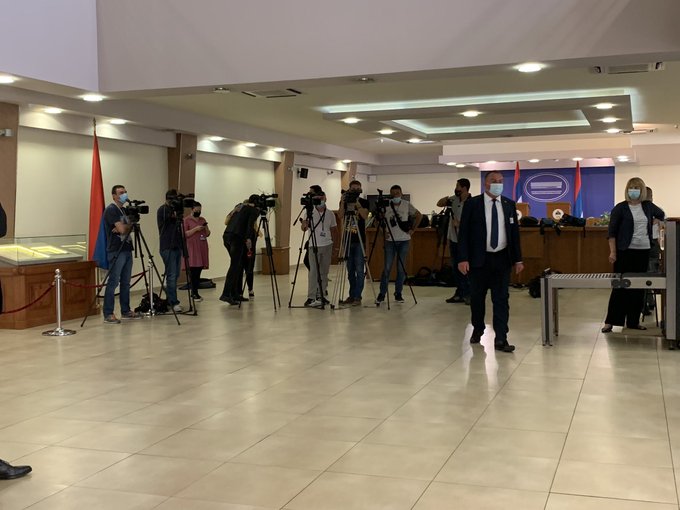
The meeting between the leaders of political parties in Bosnia's Republika Srpska (RS) entity in an effort to agree on a joint position regarding the latest decision of BiH’s international administrator who imposed a ban of genocide denial in the country has started on Monday.
Oglas
The outgoing High Representative tasked with overseeing the civilian implementation of the 1995 Dayton Peace Agreement in Bosnia, Valentin Inzko, used his special powers on Friday to introduce amendments to the BiH’s Criminal Code which sanction the glorification of war criminals convicted by final and binding judgments, as well as the denial of genocide, crimes against humanity and war crimes.
The new law prompted harsh reactions among both the ruling Bosnian Serb officials as well as the opposition.
The Serb member of Bosnia’s tripartite Presidency, Milorad Dodik, who is also the leader of the ruling party in Bosnia’s Serb-majority Republika Srpska (RS) entity, announced that the RS will start the process of dissolution of the country, repeating his intention to take the RS toward independence. He said that the decision represents the ‘last nail in the coffin’ of Bosnia and Herzegovina.
Opposition parties dismissed this idea as hazardous but in general agreed that imposing laws like this is counterproductive.
Branislav Borenovic, a fierce critic of Dodik and the leader of the opposition Party of Democratic Progress (PDP), said that the move by Inzko was “unacceptable” and called for “unity” ahead of the meeting.
He argued that RS officials should not participate in the work of BiH institutions until the issue is resolved.
Kakvo je tvoje mišljenje o ovome?
Učestvuj u diskusiji ili pročitaj komentare
Oglas
Kakvo je tvoje mišljenje o ovome?
Učestvuj u diskusiji ili pročitaj komentare
Oglas
NAJČITANIJE
Oglas
Oglas
Najnovije
Oglas
Oglas





 Srbija
Srbija
 Hrvatska
Hrvatska
 Slovenija
Slovenija









